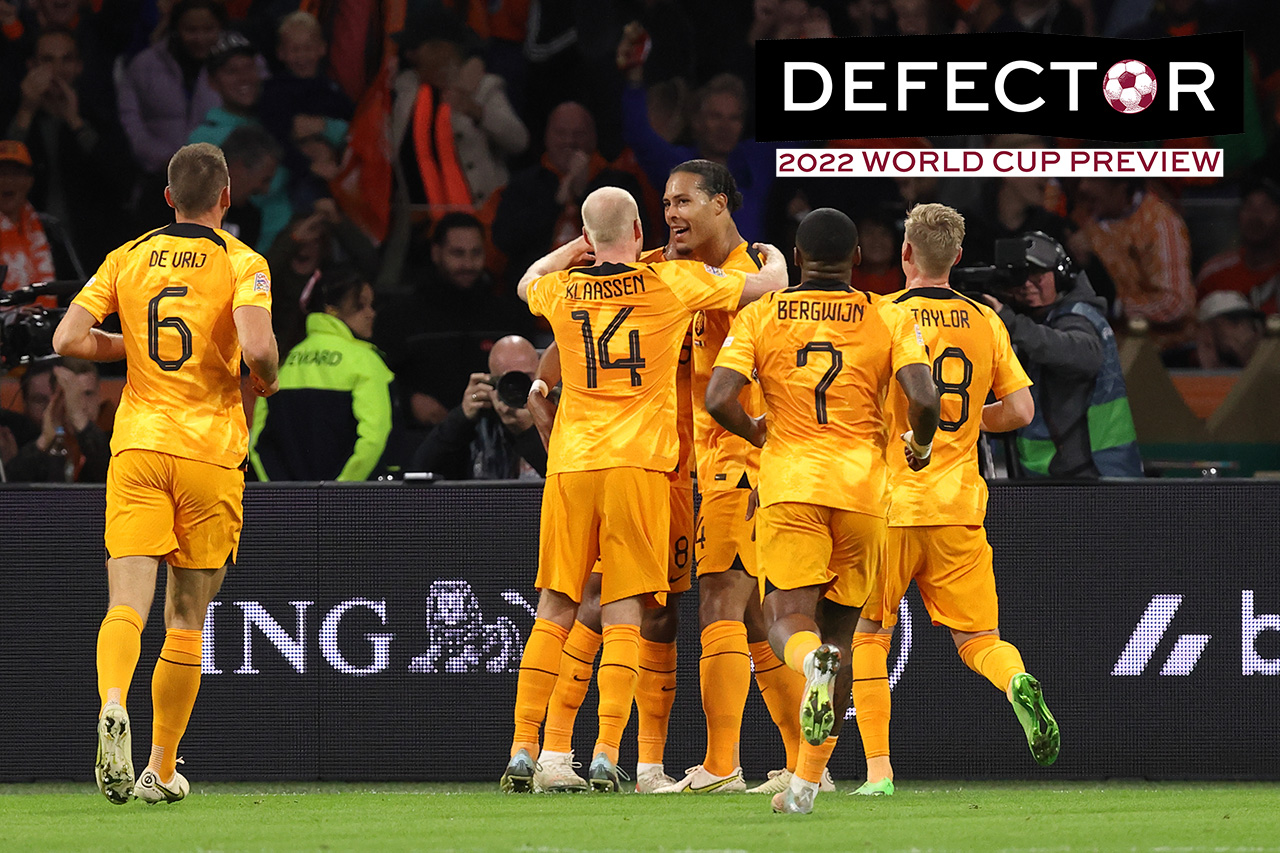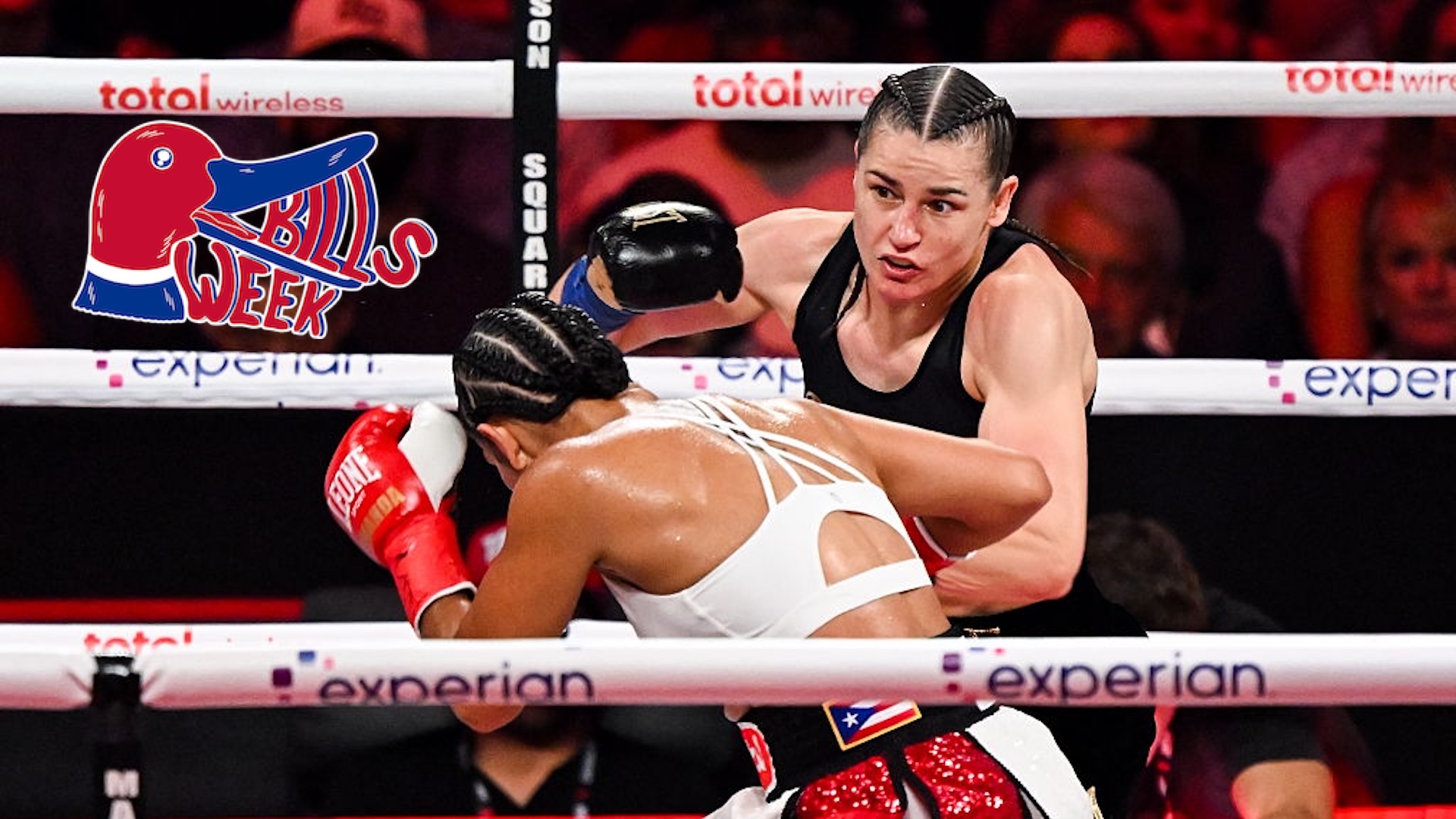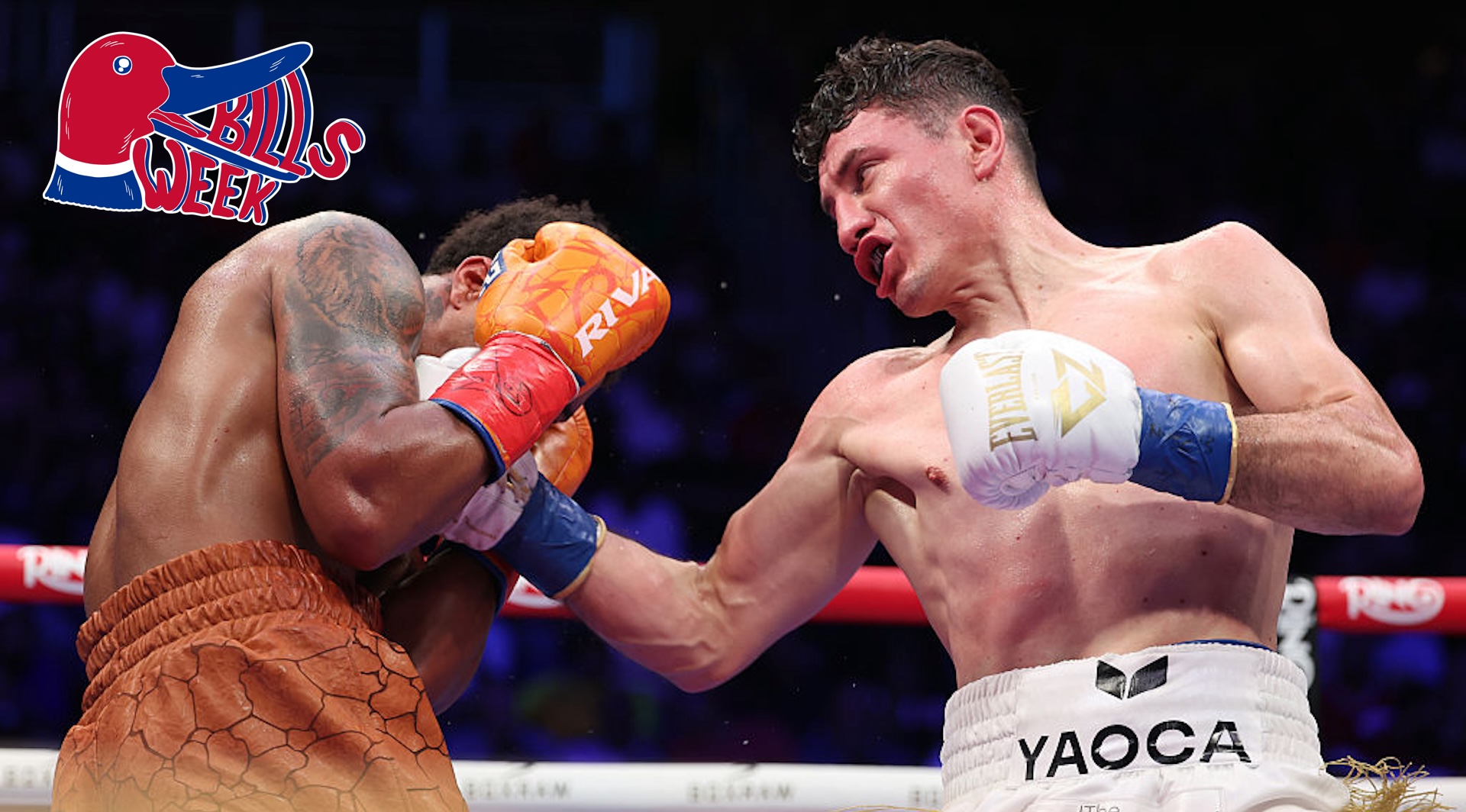It’s almost time for the 2022 World Cup. To help get you ready, we will be providing you with precious information about every team in the tournament. You can read all of our World Cup previews here.
The Netherlands has a proud history of soccer excellence, from its men's and women's national teams to its biggest clubs all the way down to its heralded youth academies. As such, it was a mild national disaster when the men's national team failed to qualify for the 2016 European Championship, and a bewildering catastrophe when it followed that up by failing to qualify for the 2018 World Cup in Russia. The last time the Dutchmen missed out on two straight tournaments was in the 1980s. (And that time it was actually three: the 1982 and 1986 World Cups, with a missed appearance at the 1984 Euros sandwiched in between.)
Following the Dark Ages of the mid-2010s, though, the Netherlands is back. Well, not back back, but at least back in the big dance with a spot in the group draw's Pot 2. The soccer gods rewarded the Oranje for its qualification for the tournament with a very manageable group, consisting of middle-of-the-pack sides in Ecuador and Senegal, as well as host nation Qatar, the weakest team in Pot 1. A run to the quarterfinals isn't necessarily a sure thing, but the bracket broke in such a way that the Netherlands should not face a better team than itself until that round, where Argentina could await.
How did the Netherlands go from missing the tournament altogether four years ago to being one of the best of the rest, behind the title favorites of Argentina, Brazil, and France? Well, a lot had to happen in that time. Virgil van Dijk became the best center back in the world, the midfield finally found its shape with Frenkie de Jong at the center of possession, and the attack saw the infusion of both young, developing talent as well as experienced players who reached a new level of production.
Maybe the biggest change for the Netherlands, though, came at the manager spot. After Louis van Gaal departed the side following the country's third-place finish at the 2014 World Cup, the Netherlands struggled through a period of overwhelmed and underwhelming bosses, the darkest point of which came under the 15-game tenure of Frank de Boer, who led the team to a round-of-16 exit in last year's Euros. After he was swiftly released from duty post-tournament, Van Gaal came back in, and the Netherlands is all the better for it.
Who Is Their Main Guy?
It's Virgil van Dijk, and pretty easily. Despite his deteriorated form for Liverpool this season, van Dijk is still the bedrock of the Netherlands' chances in Qatar. Given the team's mercurial attack, this will likely not be the free-flowing sides of Dutch past, and instead will rely on van Dijk and his fellow defenders to keep out opponents long enough for the attack to click.
At his best, van Dijk is the best defender in the world. He is a master at marshaling a defense. He'll have to do just that in Qatar, likely with Bayern Munich's Matthijs de Ligt by his side, who is no slouch in his own right but isn't as experienced or assured as the Pool Boys' standout.
Van Dijk has every tool a center back could possibly want. When he's on form, he uses them all in both attack and defense. He's fast for his massive 6-foot-4 size, very reliable in one-on-one situations, and always seems to be in the right place at the right time to stop counter attacks. He also helps direct and cover for his pacier but less positionally aware teammates on the backline. It's scary to think how much worse Trent Alexander-Arnold would be as a defender without van Dijk back there to compensate for him. Van Dijk is also a terror on set pieces, using his height and powerful jumping ability to connect with headers on goal.
For the Netherlands to make any noise in the tournament beyond the quarterfinals, van Dijk will likely have to help shut down a myriad of high-caliber attackers like Lionel Messi, Neymar, and Gabriel Jesus. He's shown the ability to do just that at Liverpool, and if he brings his best self to the national team, he'll be up there as the main reason for any surprising run into the final four and beyond.
Who Is Their Main Scoring Guy?
While van Dijk might score a header or two during the World Cup, the bulk of the Netherlands attack should come from Barcelona's Memphis Depay. The 28-year-old striker was the main producer in the Dutch qualifying campaign, scoring a whopping 12 goals, seven more than the group's second-highest scorer (Erling Haaland). Depay was both that good and that key to the Netherlands' gameplan, and his hat trick against Turkey in September 2021 helped the Oranje grab the group's lead and never let go.
Of course, nothing is ever simple for the Netherlands. Depay is entering the World Cup far from his world-beating qualifying form, or even his France-dominating form from his time in Lyon, the team he left in the summer of 2021 to ply his trade in Spain. Since joining Barcelona, Depay has been plagued with injuries and the general malaise that has typified Barcelona's post-Messi era. He currently has missed nine straight games for the Blaugrana with a thigh problem he picked up during the Netherlands' last international break in September. All signs point to him being recovered by the time the World Cup rolls around, but will the lack of playing time and rhythm affect this already inconsistent player? To reach its best, the Netherlands will need Depay to be at his best, since they simply do not have enough goalscorers beyond him to make up the difference.
Where's The Beef?
Which teams or players does the Netherlands not like? Do the Netherlands' players like each other? We investigate the Netherlands' potential enemies.
Well, aside from the team's eternal beef with its own tortured history, the country and specifically the soccer apparatus of the Netherlands appear to be in biggest conflict with the country hosting the World Cup. This isn't unique, especially among European countries, but the Dutch soccer federation (the KNVB) released a statement last year responding to the plethora of human rights abuses present in the preparation for the World Cup. Though the federation said that it would not boycott the tournament, as "human rights organisations are not in favour of a boycott," it said it would participate in a "socially responsible way."
What that means is not entirely clear, but it probably means that the first Netherlands match of the group stage—Monday, Nov. 21 against Senegal—will see some form of protest or an awareness-raising act from the team and its fans. However, the biggest statement the federation could have made aside from boycotting fell through earlier this month: the KNVB debated whether it should send a delegation of executives to the tournament, but decided to do so on Oct. 19, with the Foreign Minister Wopke Hoekstra saying that "the Cabinet thus chooses to cooperate with Qatar with a view to lasting change."
What this will mean on the field remains to be seen, but regardless, it probably won't affect the team's performance. It might make for a rowdier atmosphere from the famously loud and well-traveled Dutch fans, who have been a thorn in the side of Formula 1 this year and who might be the same for the host nation at the World Cup. As a note, the Netherlands plays Qatar in the final match of Group A, on Nov. 29. That might be the loudest showing of protest in the entire tournament.
Most Likely To Go David Ospina Or James Rodríguez Mode
Who is the Netherlands' best candidate for a breakout performance that earns them a career-changing transfer? Might this potential post-tournament transfer go well, like when Colombia's James Rodríguez went to Real Madrid after starring in the 2014 World Cup? Or could it go poorly, like when Colombia's David Ospina went to Arsenal after starring in the 2014 World Cup?
Cody Gakpo is on the cusp of the Premier League, caught between two tiers of teams. On one side (and probably the more fitting side) are the teams with a good amount of money but not much prestige. Teams like Leeds United, Nottingham Forest, and Southampton, all of which were linked to Gakpo this past summer. On the other side is, well, Manchester United, which contemplated signing Gakpo from PSV Eindhoven before going with Antony from Ajax instead. Suffice it to say, the 23-year-old winger is well on the radar of the biggest league in the world, and his performance at the World Cup might decide which tier of team gets his signature in the near future.
First, though, it's important to note what Gakpo actually does on the field, and there's a lot to love about his game for fans of the Oranje. Playing mainly as a left winger, Gakpo can do it all: He's got a great crossing boot, he can dribble at defenders, he can create for his teammates, and he can score. So far this season in the Eredivisie, Gakpo has compiled nine goals and nine assists for second-place PSV, and his attacking metrics are all off the charts for players at his level. He's a smooth presence on the ball that can turn into a chaotic whirlwind when he spots a weakness in an opponent's backline, and he's got size to go along with his pace: Clocking in at 6-foot-1, he can win headers just as easily as he can set them up with crosses.
If he were to claim one of the forward spots for the Netherlands this winter, and if he could do what he has done for PSV at the international level, then he becomes not just the Netherlands' prime James Rodríguez Mode candidate, but maybe the most likely in the entire tournament. There will always be a need for players of Gakpo's profile and age on top teams, and if his performance in both Dutch league play and the Europa League this season (three goals and two assists in five matches) continues for the Oranje, big clubs will be rushing to pay for his services.
David Ospina Mode Probability Score: 10.1
James Rodríguez Mode Probability Score: 67.8
Fun Geographical Fact
In Spanish, the Netherlands is known as the "Paises Bajos," or "low countries." This is also what "Netherlands" itself means, but I learned it in Spanish, so let's go with that. Almost a third of the country is below sea level, which has led the Dutch people to innovate complex anti-flooding mechanisms, utilizing dikes, pumps, and good old fashioned sand dunes to keep the water out.
The most impressive of these systems is the sea wall Afsluitdijk (you've got to hand it to the Dutch language here), a 20 mile dam system that runs from Den Oever to Zurich (the Dutch one).
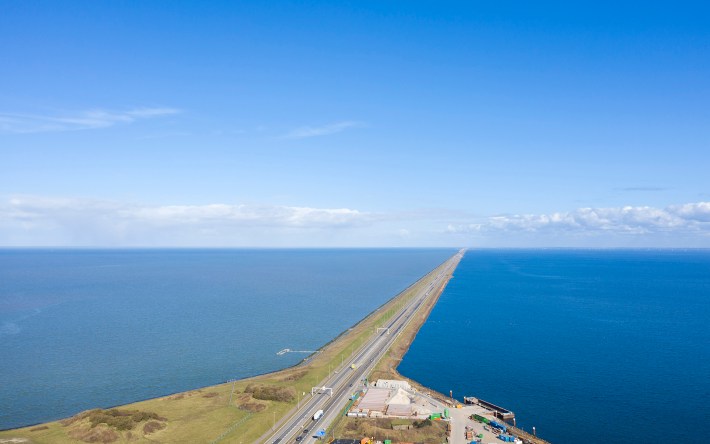
Good Flag Or Bad Flag?
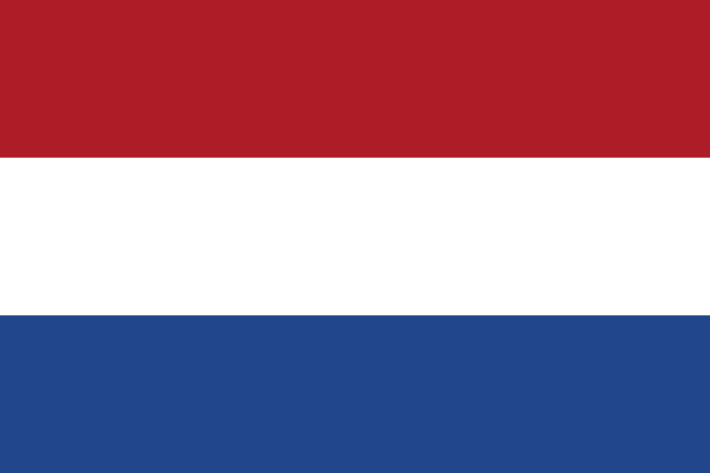
The flag is bad.
Sorry, but European countries can't have good flags if they use red, white, and blue. This one especially hurts because the current flag replaced two flags of differing colors. The statenvlag used a lighter shade of blue and red until it was replaced in 1937, and the Prince's Flag used orange instead of red. (The Prince's Flag is now used by far-right groups in the country, so maybe it's good that that one was replaced, but I can't ding the color scheme too much for modern-day usage by horrible people.)
Good Anthem Or Bad Anthem?
Sorry for mixing sports here, but I am so sick of hearing the Dutch national anthem in 2022, as it played after each of Max Verstappen's many Formula 1 wins this season. That being said, the song on its own merits is also ass. Most European anthems are ass—Italy didn't make the World Cup but that anthem is a good one—because they are all roughly along the same, boring lines. Get out of here, Europe!
Notable Moment In World Cup History
Where to begin? The Netherlands holds the record for most appearances in a World Cup final without winning the trophy. Not a record any country wants to hold, even if it speaks to the Netherlands' impressive soccer history. The Oranje went to back-to-back finals in 1974 and 1978, losing the former to West Germany in Munich and the latter to Argentina in Buenos Aires. Those Netherlands sides were among the best national teams in history, and the 1974 edition especially probably goes down as the best side to not win a World Cup, depending on how you feel about 1954 Hungary.
However, we're talking specific moments here, so let's fast forward to the 21st century. The Netherlands wasn't as explosively fantastic at the 2010 South Africa World Cup, but the team still had enough defensive prowess to back up its attack all the way to the final, where it lost in extra time to Spain off Andrés Iniesta's counter-attack finish.
It should have never gotten to that, though. In the 62nd minute of the final, Dutch star Arjen Robben found himself with a breakaway one-on-one against Iker Casillas, with a chance to give his country its first World Cup final lead since the second minute of the 1974 edition. Instead, the reliable lefty couldn't get around the charging Casillas, who saved the shot with his trailing leg, keeping the score at 0–0 and setting the table for Iniesta's eventual winner.
The Netherlands has never been closer to winning the World Cup than it was in 2010, and specifically, in those brief seconds when it looked like Robben would get them there.
How Can They Win The World Cup?
The biggest opponent that the Netherlands will face is the same one that it always faces: history. Maybe more accurately, the Netherlands will have to overcome the cruel hands of fate that have left it on the outside looking in so many times. Since its arrival on the World Cup stage with that runner-up finish in 1974, the Dutch have been eliminated by a single goal or in penalty shootouts in all but one of their appearances. (The 1978 final ended 3–1 in favor of Argentina, but that was in extra time, so it sort of counts here.)
If the team can fire on all cylinders and win the coin flips that a World Cup-winning team must in order to secure the trophy, there is no reason that 2022 can't be the year for the Oranje. They can beat every team in the world on any given day. However, as they showed at last summer's Euros, the Netherlands can also lose to teams below its level with ease, so there will need to be a combination of stellar play, mental fortitude, and abundant amounts of good fortune for it to finally shed the title of The Best National Side Never To Win A World Cup.
